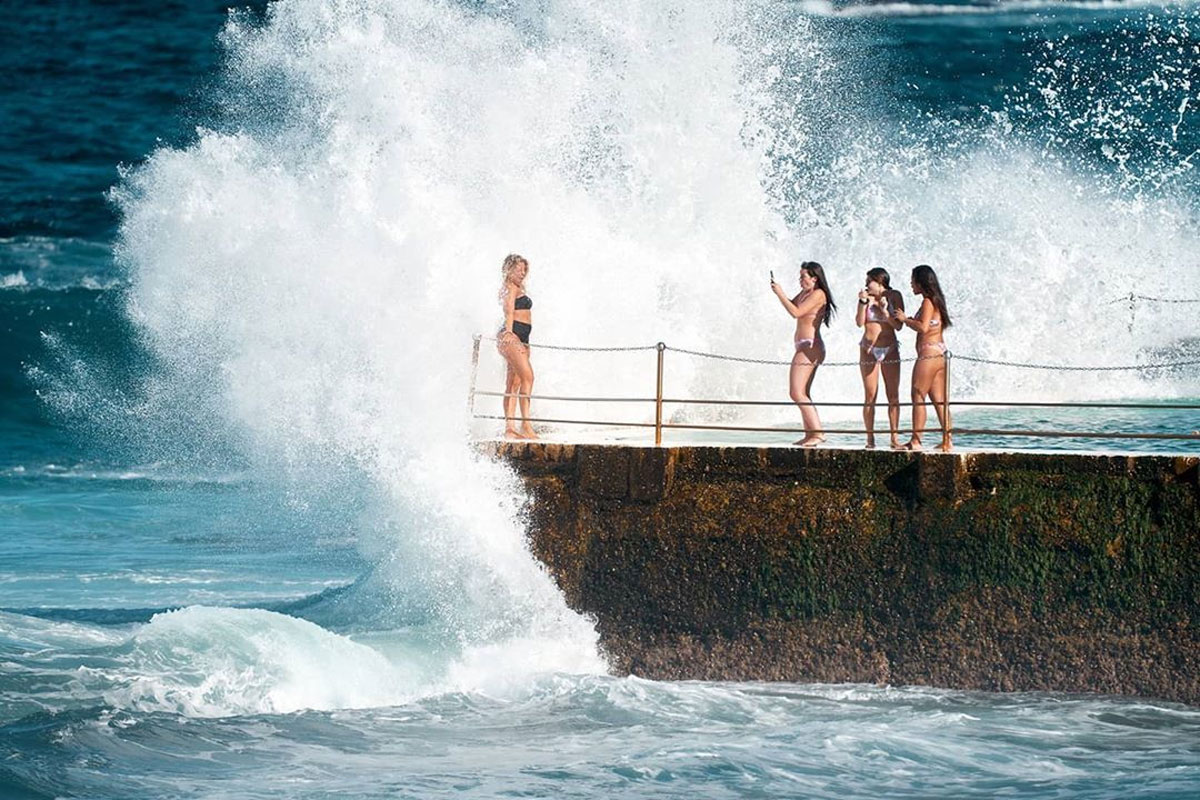Airlines are axing flights, small businesses are shutting up shop, large corporations are closing offices and Bondi beachgoers are basking in the autumn sun.
At least that’s how it appears in a recent photograph taken by photographer Eugene Tan, an iconic Eastern Suburbs lensman who has been shooting daily since 1999.
“…Meanwhile back in Bondi (I shot these 10 minutes ago),” the Australian Fine Art Beach Photographer, otherwise known as Aquabumps, captioned the photo, which he posted to Instagram yesterday.
View this post on Instagram
“There are fights in our supermarkets for loo paper, in the USA some are queuing at gun shops, most of the world are wearing masks and hiding in their homes,” Eugene continued.
“The vibe in Bondi is very chilled about it all. It’s quite busy down here…and there’s waves…”
”Stay healthy!” Eugene ends the post.
This met mixed response, with some missing the fact that Eugene was observing, not judging or advocating, making comments like, “This post won’t age well I’m afraid.”
Others took issue with the beachgoers themselves, with one (apparent) health worker writing: “As a health worker this is absolutely devastating to see. We are practicing and preparing for the worst and thinking about decisions we hope we would never have to make.”
“To see a whole bunch of people close to each other, absolutely ignoring so many pleas from health professionals so that our ICUs and EDs are not overwhelmed, and so that we have enough ventilators to support all that need it. Please stop being so selfish.”
Another wrote: “Nice to see Australians taking the Coronavirus so seriously, they’ll probably pop into visit grandma on the way home.”
To which others responded: “Sure, it might just blow up in our face very soon but it won’t be from people going to the beach. Safer to go for a surf or swim at Bondi then sitting in a pub or a mall.”
“Dear World, If you can’t say anything nice about this photo please do not say anything at all. Sincerely, Global sanity.”
Then came the warnings from overseas: “As someone from California…give it a few days. Won’t look like this.”
“Meanwhile, in Florida, public beaches are closing.”
Despite (or perhaps because) of all this, the residents of Sydney’s Eastern Suburbs are making the most of it before (or in case) our government introduces the same stringent measures currently in place in Spain, Italy, France and the US – all countries where it’s tempting to hit the beach right now too, to soak up the spring sun, but where, in many places, it is not permitted to do so.
View this post on Instagram
According to the Australian Government Department Of Health, across the world there have been more than 204,700 confirmed cases of COVID-19 and more than 8,400 deaths, while in Australia as at 6.30am on 19 March 2020, there had been 565 confirmed cases of COVID-19 in Australia, and 6 deaths.
While this is comparatively small, there have been 111 new cases since 6.30am yesterday, and – unlike Europe and China – we are heading into winter, a time of year the Coronavirus is thought to thrive. Not to mention Sydney has been worst hit of all the Australian capitals.
To help prevent the spread of COVID-19, the Australian Health Protection Principal Committee is placing limits on organised gatherings and visits to vulnerable groups, including restrictions for indoor and outdoor gatherings.
Australians are advised to limit non-essential internal gatherings to fewer than 100 people and outdoor gatherings to fewer than 500 people.
While outdoor events, as of now, of less than 500 attendees can proceed, “all events should follow these precautions,” writes the Australian Health Protection Principal Committee.
- Consider the size of the space, the number of people in it, and how much room people have to move around safely — as a general rule, people should be able to keep 1.5 metres apart
- make hand hygiene products and suitable rubbish bins readily available
- conduct frequent cleaning and waste disposal
